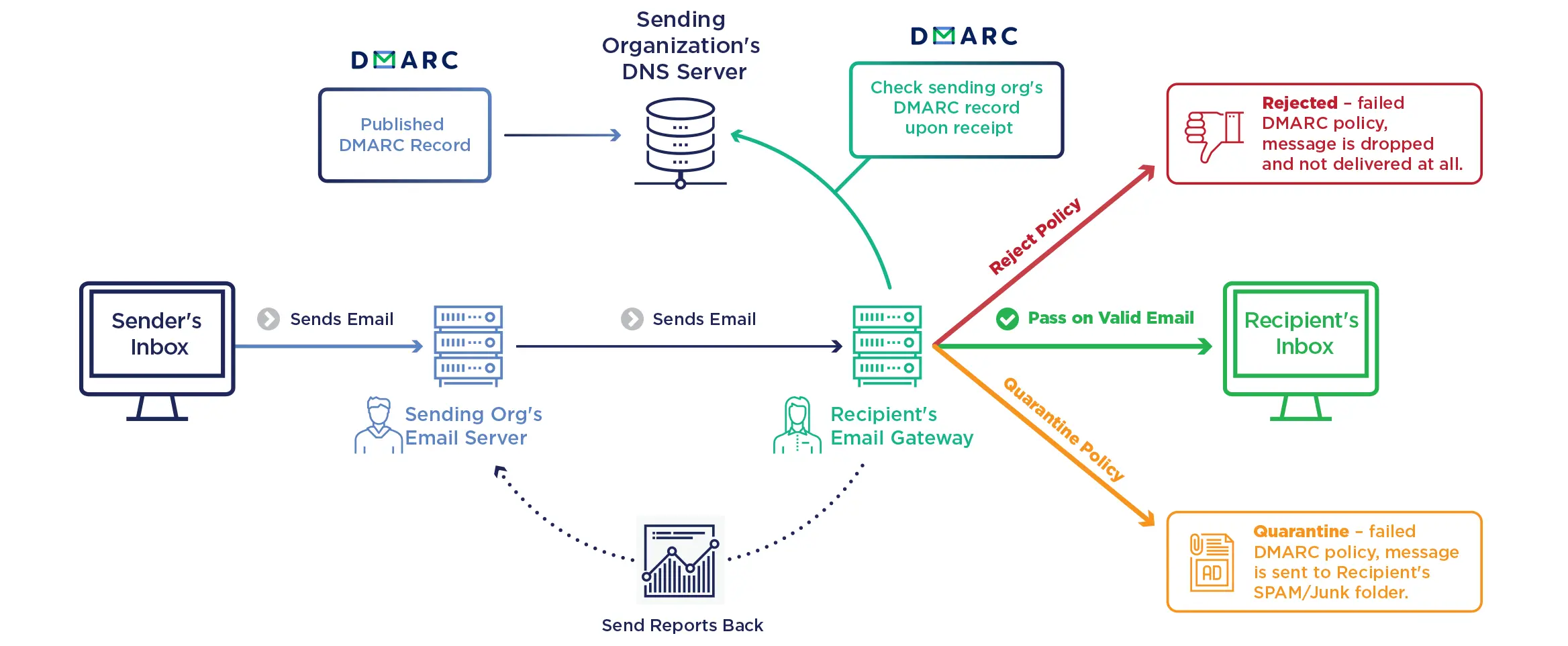In an increasingly digital world, email has become a ubiquitous mode of communication. However, its widespread use has also made it an attractive target for cybercriminals seeking to exploit vulnerabilities in the system. To combat email fraud and phishing attacks, organizations have implemented various security measures, including DMARC (Domain-based Message Authentication, Reporting, and Conformance). DMARC has proven effective in authenticating email senders and protecting recipients from malicious emails. In recent years, DMARC has evolved with the introduction of extensions, further enhancing its capabilities and bolstering email security.
Contact us 202-810-7755 today to learn more about DMARC Extensions. Please contact us for DMARC Extensions for your business or if you have any questions or concerns.
DC Metro IT Help
Understanding DMARC
DMARC is an email authentication protocol that allows organizations to specify policies for email messages sent from their domains. It builds upon two existing protocols, SPF (Sender Policy Framework) and DKIM (DomainKeys Identified Mail), to provide a comprehensive email authentication mechanism.
SPF verifies that an email’s sender is authorized to send emails on behalf of a domain by checking the IP address of the originating server. DKIM uses digital signatures to verify the integrity and authenticity of the email message. DMARC combines these two protocols and adds an additional layer of policy and reporting capabilities.
DMARC Extensions
DMARC extensions are additional features and functionalities that extend the capabilities of the core DMARC protocol. These extensions address specific challenges faced by organizations in combating email fraud and further enhance email security. Here are some notable DMARC extensions:
- BIMI (Brand Indicators for Message Identification): BIMI allows organizations to display their brand logos alongside authenticated email messages in supporting email clients. It helps recipients quickly identify legitimate emails from trusted senders, reducing the risk of falling for phishing attempts.
- ARC (Authenticated Received Chain): ARC enables the validation and preservation of email authentication results when an email message passes through intermediate forwarding servers. It helps address challenges faced by mailing lists and email forwarding services that may modify the original email’s authentication results.
- MTA-STS (Mail Transfer Agent Strict Transport Security): MTA-STS leverages the HTTPS protocol to ensure secure and encrypted connections between email servers. It establishes a policy that mandates secure communication, reducing the risk of interception and tampering during email transmission.
- SMTP TLS Reporting: This extension allows domain owners to receive reports on the usage and effectiveness of Transport Layer Security (TLS) encryption when transmitting email. It helps identify vulnerabilities and ensures the proper implementation of encryption protocols.
Benefits and Implications
The incorporation of DMARC extensions provides several benefits to organizations and email recipients alike:
- Enhanced Brand Protection: BIMI enables organizations to reinforce their brand identity and build trust with customers by displaying their official logos in supported email clients. This helps combat phishing attacks and improves brand recognition.
- Improved Email Forwarding: ARC allows intermediate email forwarding servers to maintain the integrity of email authentication results. This ensures that legitimate emails continue to be recognized as such even after passing through intermediaries, reducing the likelihood of false positives or false negatives.
- Strengthened Email Transmission Security: MTA-STS ensures secure connections between email servers, mitigating the risk of man-in-the-middle attacks and unauthorized access to sensitive email content.
- Proactive Vulnerability Detection: SMTP TLS Reporting provides valuable insights into the usage and effectiveness of encryption protocols, allowing organizations to identify potential vulnerabilities and address them promptly.
Email security remains a critical concern in today’s digital landscape, with phishing attacks and email fraud posing significant risks to individuals and organizations alike. DMARC, coupled with its extensions, provides a robust framework for authenticating email senders and protecting recipients from malicious emails.



Leave a Reply